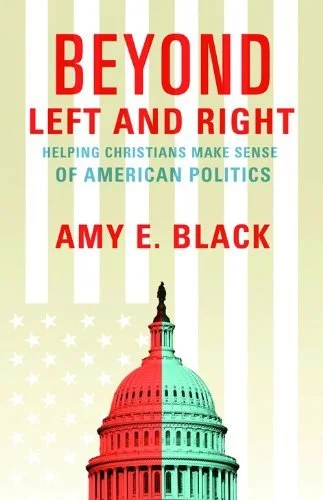Beyond Left and Right
“Although he is regularly asked to do so,” former U.S. senator George Mitchell once said, “God does not take sides in American politics.”
It’s true. But does it automatically follow that we as Christians should refrain from taking sides as well? If God doesn’t take sides, what role is there for Christians to play within the two-party system as we know it? If we’re to participate in American politics while holding first and foremost to the core convictions of our faith, where do we begin?
Dr. Amy Black is a political science professor at Wheaton College whose work has focused on American politics and political behavior. She previously taught at Franklin & Marshall College in beautiful Lancaster, Pennsylvania. In Beyond Left and Right: Helping Christians Make Sense of American Politics (Baker), Black aims to equip Christians to participate in politics in a thoughtful, educated way. If, like me, you didn’t exactly pay close attention during American Government class in high school, this book will help you understand how our government actually works, beyond the ubiquitous flash in the pan political sound bites.
Black begins Beyond Left and Right with some initial thoughts on the relationship between faith and politics, providing some biblical and theoretical principles to guide political conversations among Christians. She then provides a brief overview of the history of American politics, and shows how this history has shaped our present context.
Next, she turns to the practical “nuts and bolts” of our government system, including a helpful explanation of the development of our two-party system, the roles of the three branches of government, and a reflection on different understandings of the idea of the separation of church and state.
The final section of the book is where Black really turns the corner from explanation and overview to personal application. Using domestic poverty as a case study, she suggests that thoughtful, compassionate, and informed Christian voters can part ways when it comes to policy solutions, and that even where we agree in terms of ends, we may differ when it comes to the preferred means of achieving those outcomes.
In a very helpful chapter, she urges Christians to educate themselves about issues and candidates before voting, but also to consider the different duties of office and powers of office at various levels of government, and to be able to prioritize the issues that matter to us accordingly whenever we cast our vote. She concludes by offering some practical steps we can take if we wish to participate in the political process “beyond the ballot box.”
There are other books written by Christians on both sides of the aisle aiming to convince us to see policy debates along the lines of one party or another, and those books have their place. But Beyond Left and Right is not one of those books. Instead, Christians would do well to read this book before they spend too much time and energy absorbing arguments on either the right or the left.
Faithful engagement in American politics will lead many of us to affiliate with one party or the other. Meanwhile, others of us will decide as a matter of principle it’s better to remain independent, but no less involved in the conversation and the political process. Regardless of our affiliation, Black offers us the tools to approach our political commitments thoughtfully and with conviction — not, to paraphrase the Apostle Paul, being swayed by every wind of political pandering.
